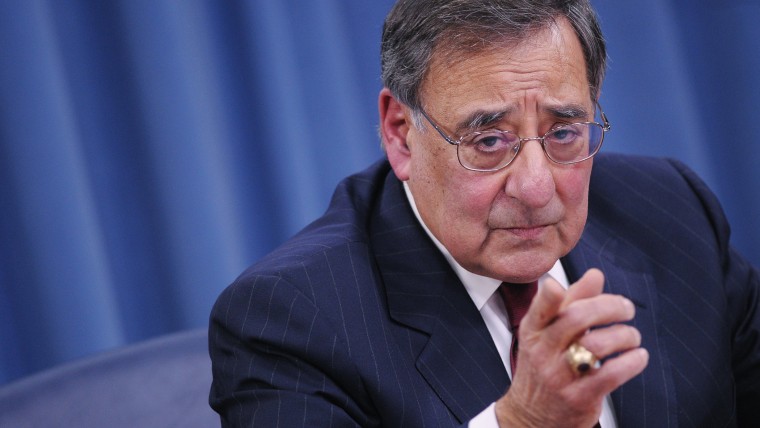There's ample precedent for members of a president's team leaving office, writing a book, and having unkind words for their former boss. And as a simple matter of capitalism, it stands to reason that these books have to be controversial to make money -- books in which former officials spend 300 pages saying, "The president and I made a bunch of smart and effective decisions," probably don't sell well.
But former Defense Secretary Leon Panetta has been pushing his luck lately, taking a series of dubious shots at President Obama.
Panetta is hardly the first former cabinet official to publish a self-congratulatory, self-serving book, and if the former Pentagon chief hoped to generate interest in his memoir, he's succeeded -- Republicans can't stop talking about how much they suddenly love Leon Panetta.
But if we look past the personalities and the partisans, and focus solely on the policy, there are some striking problems with Panetta's complaints about Obama. For example, he told USA Today this week, "For the first four years, and the time I spent there, I thought [the president] was a strong leader on security issues.... But these last two years I think he kind of lost his way."
Kevin Drum's reaction was spot-on.
[Panetta's] basic worldview is simple: as long as Obama is launching lots of drone attacks and surging lots of troops and bombing plenty of Middle Eastern countries -- then he's a "strong leader on security issues." But when Obama starts to think that maybe reflexive military action hasn't acquitted itself too well over the past few years -- in that case he's "kind of lost his way." That's the default view of practically everyone in Washington: Using military force shows strong leadership. Declining to use military force shows weakness. But most folks inside the Beltway don't even seem to realize they feel this way. It's just part of the air they breathe.... This is what Obama is up against.
And while every syllable of this is true, the scope of Panetta's odd complaints goes further.
The former Defense Secretary last week wrote a piece blaming Obama's withdrawal of U.S. troops from Iraq for the chaos gripping much of the country. And yet, it was none other than Leon Panetta who defended Obama's withdrawal policy, repeatedly, before he was trying to boost book sales.
Panetta now says he believes Obama should have pressed Iraqi officials to keep thousands of U.S. troops in Iraq indefinitely. What would those troops have accomplished that they didn't already try over the last decade? Panetta hasn't really said. What was Obama supposed to do about the fact that Iraq wanted American servicemen and women out? Panetta hasn't really explained that, either. Why did Panetta see a residual force as impossible in 2011, only to believe the opposite now? He hasn't offered an explanation of this, either.
And yet, Panetta just keeps complaining, not just about Iraq, but about U.S. policy in Syria, too, where the former Pentagon chief apparently believes it's irrelevant that Obama rid Syria of its chemical-weapons stockpiles -- weapons that now can't fall into the hands of Islamic State militants.
Making matters slightly worse, as part of Panetta's all-out media blitz, he complained to the New York Times about Obama going to Congress last year before intervention in Syria, and then complained about Obama not going to Congress this year before intervention in Syria.
Who knows, maybe this is a terrific public-relations strategy for a guy on a book tour. If Panetta hoped to generate chatter about his book, the past couple of weeks have been a triumph. If he hoped to get White House critics interested in his memoir, Panetta has done what he set out to do.
But those looking for real insights into a sensible national security policy probably haven't learned much from Panetta's p.r. campaign.
